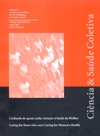0509/2008 - The “Farmácia Popular do Brasil” Program and aspects of public provision of medicines in Brazil.
Quem acessa o Programa Farmácia Popular do Brasil? Aspectos do fornecimento público de medicamentos.
Author:
• Cláudia Du Bocage Santos Pinto - Santos-Pinto, C. D. B. - Rio de Janeiro, Rio de Janeiro - Escola Nacional de Saúde Púlica - ENSP/FIOCRUZ - <clabocage@fiocruz.br>Thematic Area:
Não CategorizadoAbstract:
In 2004, the Federal Government introduced the Program called “Farmácia Popular do Brasil”, an example of policy innovation, establishing a co-payment scheme as a strategy for access to medicines. The study analyzes the original model of the Program. Data were obtained from interviews with key stakeholders, Program documents and user prescriptions and registers. The results showed a large expansion of the PFPB network and in the number of dispensing encounters. Despite the ever-increasing number of dispensing encounters brought about by prescriptions from the private sector, the original focus of the Program, a large demand from public sector users was observed. From the point of view of the federative pact, the Program rekindles the centralized model of essential medicines provision which, into the decentralized public system are under states and municipalities responsibility. The results point to the difficulty in compliance by states and municipalities with medicines provision responsibilities, mainly in the North and Northeast regions of Brazil. The study concludes that population has been consistently seeking the PFPB for essential medicines it has not been able to access in the public sector.Key-words: Essential medicines; Access; Co-payment; Decentralization; Governmental Programs.











